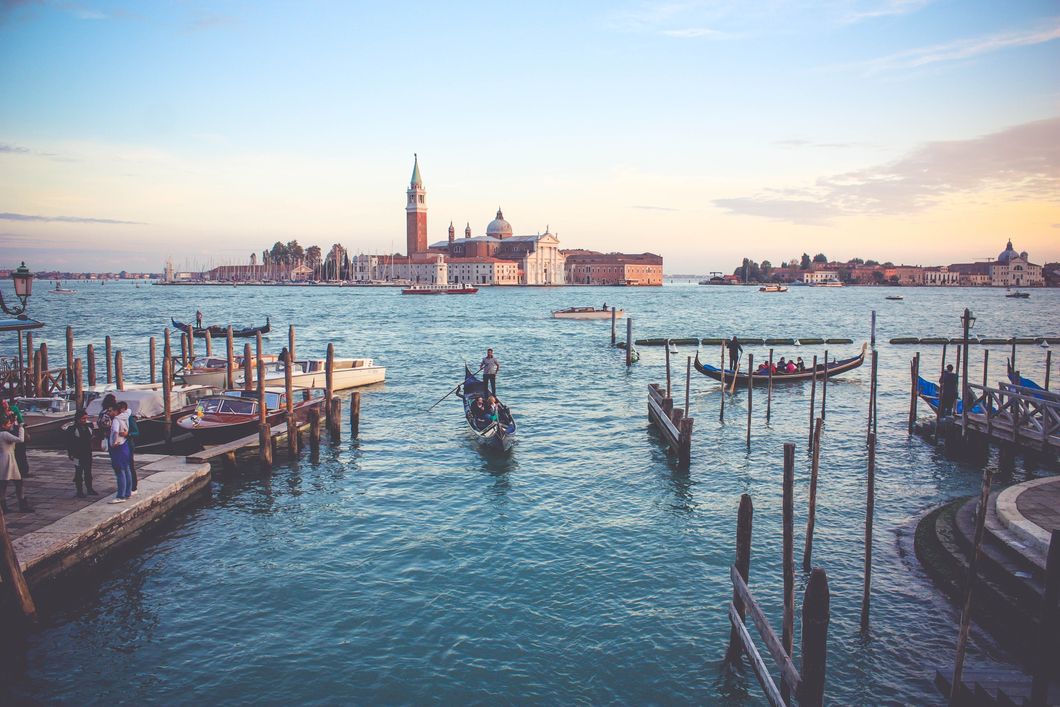Ever since I was a little girl, reading books has been my favorite pastime. As I grew older, the young adult novels I was reading started to seem repetitive and boring, I longed for more complex writing and storylines. I longed for stories and characters that have weathered centuries. When I started high school, English class was the one I was most excited for.
Finally, I was going to travel to Verona to witness the tragedy of "Romeo and Juliet." I sailed seas and met mythical creatures alongside Odysseus. And I watched, in shock and horror, the tragedy of Antigone unfold. And among all these greats was someone I'd never heard of, Italo Calvino.
It was in my sophomore English class when I first heard his name. My teacher, Mrs. Lafty, attended the Bread Loaf School of English in Vermont. It was there in the rolling green hills she sat on the porch of her professor's house with her classmates and was introduced to Italo Calvino and his Invisible Cities.
Every time she spoke of Calvino and his work, she spoke tenderly as if she wanted to jump into the prose rather than merely speak about it in reality. When I read the first page, I immediately understood what the fuss was about. This was not going to be just any ordinary novel.
Invisible Cities by Italo Calvino is more than a novel. It's a compilation of stories, it's a magical fairy tale, it's a travelogue, it's a mirror, whatever you have inside of your heart you will read the pages and come back with a realization, or a reflection, or a sign. It follows Marco Polo as he explains to Kublai Khan all the adventures he's been on, the places he's visited, and the things and people he's seen.
It is split up into nine sections, each section holds stories of various cities. There are trading cities, thin cities, cities and memory, cities and desire, hidden cities, and so much more. What do they all mean? That's for you to interpret for yourself.
“Cities, like dreams, are made of desires and fears, even if the thread of their discourse is secret, their rules are absurd, their perspectives deceitful, and everything conceals something else." — from Invisible Cities In a garden sit the aged Kublai Khan and the young Marco Polo — Mongol emperor and Venetian traveler. Kublai Khan has sensed the end of his empire coming soon. Marco Polo diverts his host with stories of the cities he has seen in his travels around the empire: cities and memory, cities and desire, cities and designs, cities and the dead, cities and the sky, trading cities, hidden cities. As Marco Polo unspools his tales, the emperor detects these fantastic places are more than they appear. “Invisible Cities changed the way we read and what is possible in the balance between poetry and prose . . . The book I would choose as pillow and plate, alone on a desert island." — Jeanette Winterson
Although it was a translated work, Calvino's carefully put words were unique and apparent. More unique was his imagination, poured out right there onto the page like a bottle of ink. There are no limitations.
What's all this fuss about? Is "Invisible Cities" really that good? You'll just have to go and find out for yourself.





 Lumiere figure at the Disney Store at the Ala Moana Shoppi… | Flickr
Lumiere figure at the Disney Store at the Ala Moana Shoppi… | Flickr








 StableDiffusion
StableDiffusion StableDiffusion
StableDiffusion 10. Extra BlanketsJuwenin Home 100% Cotton Knitted Throw Blanket
10. Extra BlanketsJuwenin Home 100% Cotton Knitted Throw Blanket StableDiffusion
StableDiffusion StableDiffusion
StableDiffusion File:Kishlaru familie.jpg - Wikimedia Commons
File:Kishlaru familie.jpg - Wikimedia Commons Photo by Hanna Balan on Unsplash
Photo by Hanna Balan on Unsplash StableDiffusion
StableDiffusion black blue and yellow round illustrationPhoto by
black blue and yellow round illustrationPhoto by 





 woman holding glass jar
Photo by
woman holding glass jar
Photo by 








